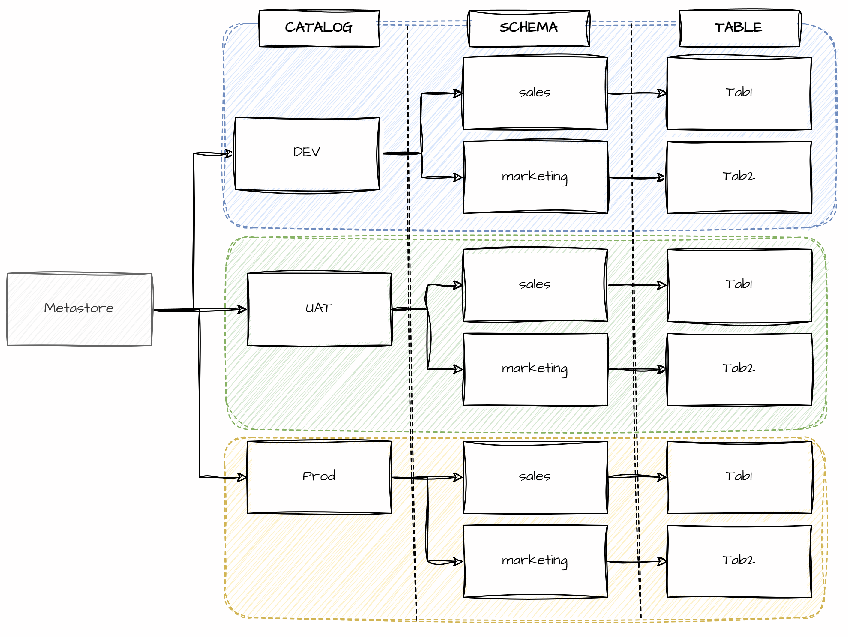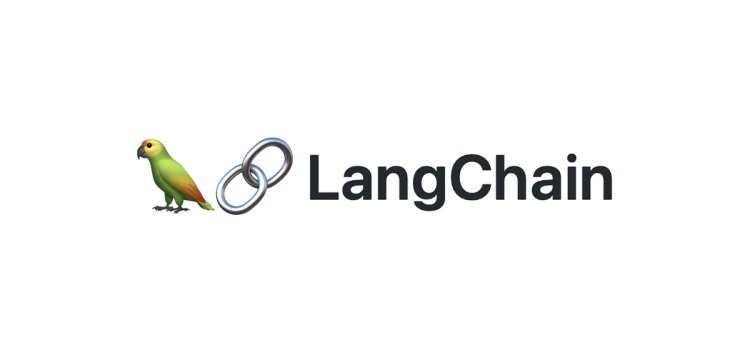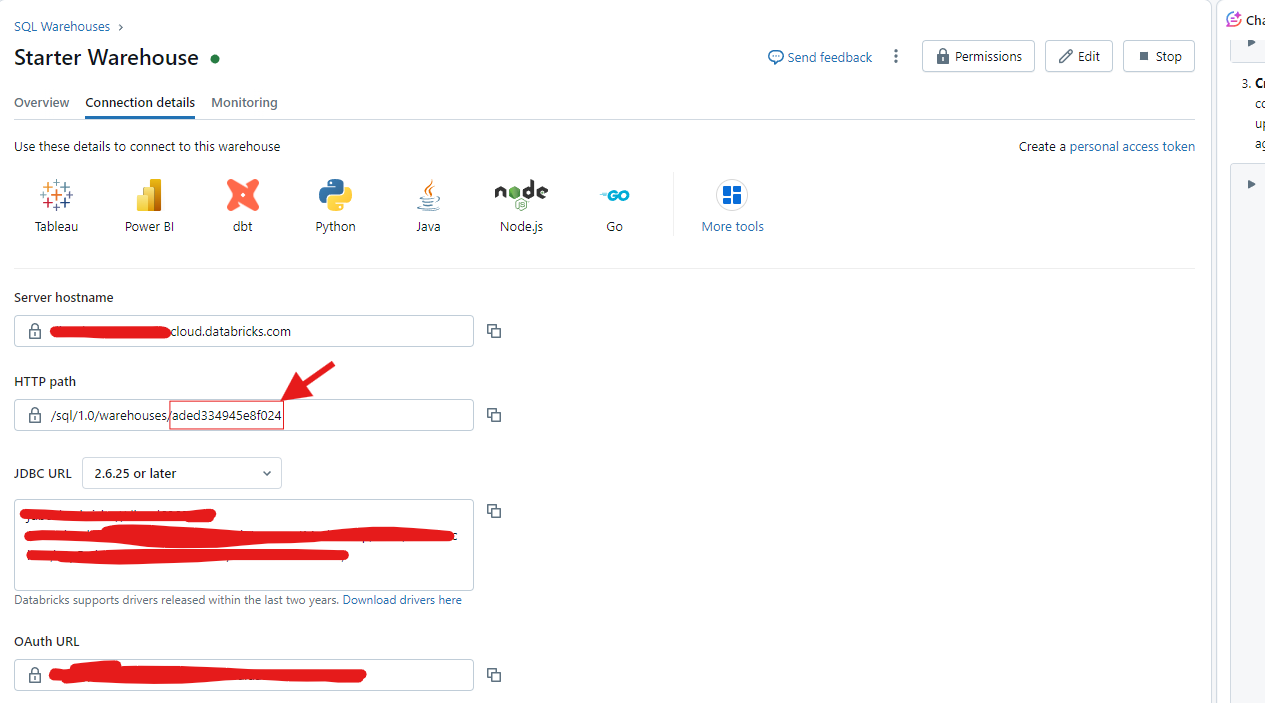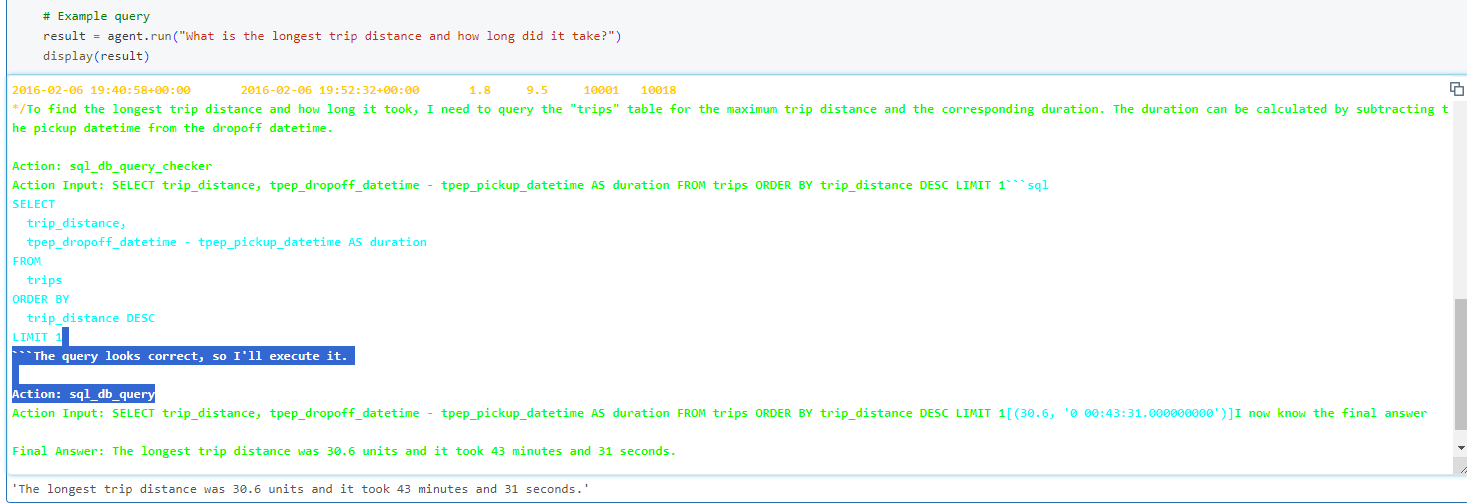Querying with the Databricks SQL agent
Databricks with the Python SDK

Avi Steinberg
Senior Software Engineer
Databricks Unity Catalog
- Primary method to store data in Databricks
- Contains schemas, which can contain multiple tables
- Create tables in schema from a wide variety of sources
- Multiple open-source schemas in the samples catalog

1 https://docs.databricks.com/aws/en/catalogs/
LangChain
- Library that allows us to build and deploy LLM applications
- Allows you to create AI agents that use SQL to query data

Python LangChain dependencies
Install Python package dependencies:
pip install --upgrade databricks-langchain langchain-community langchain
databricks-sql-connector databricks-sqlalchemy
Import libraries:
from langchain_community.agent_toolkits import create_sql_agent
from langchain_community.agent_toolkits import SQLDatabaseToolkit
from langchain_community.utilities import SQLDatabase
from databricks_langchain import ChatDatabricks
Databricks SQL Warehouse ID

Authenticate LangChain to Databricks Workspace
Export environment variables:
os.environ["DATABRICKS_TOKEN"] = "<Your-Access-Token>"
os.environ["DATABRICKS_HOST"] = "<your-workspace-id>.cloud.databricks.com"
Databricks SQL agent
- Ask an AI agent questions about data in a Databricks catalog schema
- AI agent can answer questions about the data that require SQL
- Specify
verbose=Trueto have the AI agent show its work

Use Databricks SQL agent to query Catalog
db = SQLDatabase.from_databricks(
catalog="samples",
schema="nyctaxi",
warehouse_id=warehouse_id)
llm = ChatDatabricks(
endpoint="databricks-meta-llama-3-3-70b-instruct",
temperature=0.1,
max_tokens=100)
toolkit = SQLDatabaseToolkit(db=db, llm=llm)
agent = create_sql_agent(llm=llm, toolkit=toolkit, verbose=True)
# Query the Databricks SQL Agent
result = agent.run("What's the time and distance of the longest trip?")
print(result)
1 https://docs.databricks.com/aws/en/large-language-models/langchain#databricks-sql-agent
Create a LangChain SQL database from a Databricks Catalog
db = SQLDatabase.from_databricks(
catalog="samples",
schema="nyctaxi",
warehouse_id="<your-warehouse-id>"
)
1 api.python.langchain.com/en/latest/utilities/langchain_community.utilities.sql_database.SQLDatabase.html
Create a LangChain LLM using a foundational model
llm = ChatDatabricks(endpoint="databricks-meta-llama-3-3-70b-instruct",temperature=0.1, max_tokens=100, )
temperature: a float between 0 and 1 used to specify the randomness in model responsesmax_tokens: specify the maximum number of tokens in the response
1 https://docs.databricks.com/aws/en/large-language-models/langchain
Create a LangChain SQL database toolkit
toolkit = SQLDatabaseToolkit(db=db, llm=llm)
1 https://docs.databricks.com/aws/en/large-language-models/langchain
Create a Databricks SQL Agent
agent = create_sql_agent(llm=llm, toolkit=toolkit, verbose=True)result = agent.run("What's the time and distance of the longest trip?") display(result)
The average trip takes approximately 15 minutes.
1 https://docs.databricks.com/aws/en/large-language-models/langchain
Let's query Databricks data!
Databricks with the Python SDK

